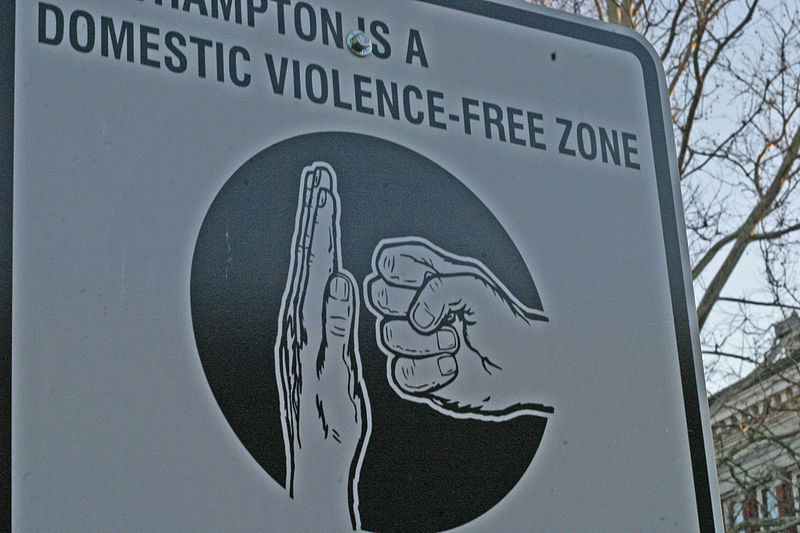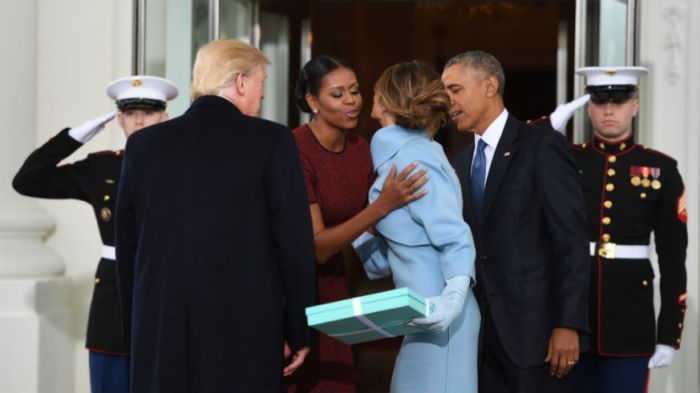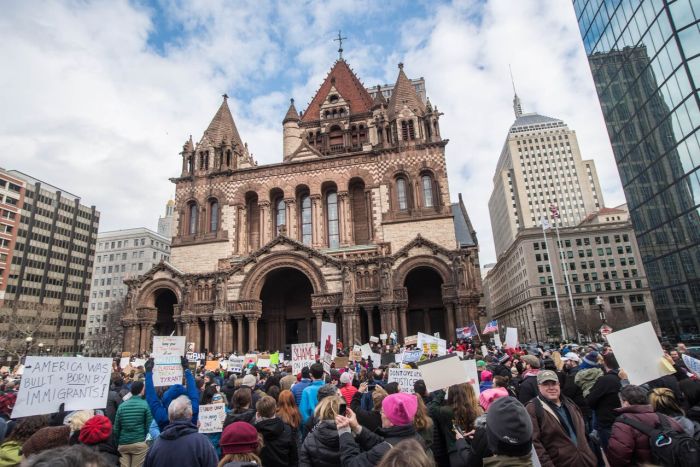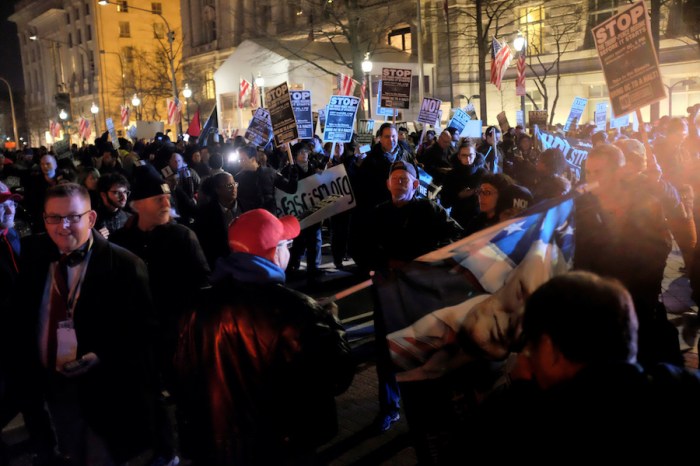Police can respond to a variety of calls, but according to Milton Police Chief John King, the most common violent crime his department deals with is domestic violence.
King is pretty confident it’s a common call in most communities. In Massachusetts, nearly one in three women and one in five men have experienced physical violence, rape or stalking by an intimate partner, according to a Centers for Disease Control and Prevention survey— and those numbers are likely to be underreported, King said. In just one day, domestic violence programs across the Commonwealth work with more than 1,900 of these survivors, according to 2015 data. But the funding for such services could be on the chopping block, and that would be “devastating” for victims, advocates say. The Trump Administration is looking to decrease federal spending with “dramatic” budget cuts, according toThe Hill, with a budget blueprint based off of one published last year by conservative think tank Heritage Foundation. Trump’s team wants to reduce federal spending by $10.5 trillion; the Heritage Foundation’s budget plan calls for eliminating the Violence Against Women Act grants in order to help achieve that goal. Those grants include 25 in total designed to “reduce domestic violence, dating violence, sexual assault and stalking by strengthening services to victims and holding offenders accountable,” according to the Department of Justice. In 2015, organizations in Massachusetts received about $10.9 million of the Violence Against Women Act (VAWA) funding. The total VAWA budget that year was $430 billion — about 0.012 percent of 2015’s federal spending total of $3.7 trillion. “Eliminating this money is not going to create a lot of savings,” said Maureen Gallagher, policy director at Jane Doe, Inc., a coalition against sexual assault and domestic violence. “[But] what it does in our communities is incredible, from providing legal assistance for survivors of sexual assault and domestic violence to helping fund shelters and community-based services.” Sue Chandler, executive director of DOVE (Domestic Violence Ended), a Quincy-based organization, said that it unfortunately isn’t very surprising that these programs could be defunded.
“All along, through the campaign, violence against women has been at the core as an area of concern… whether it’s societal attitudes or funding, it’s been an issue that has been in great public discussion over the last year,” she said. Chandler acknowledged that as of yet, no concrete action to defund VAWA has been taken by the president, but she’s still concerned.
So is Stephanie Brown, CEO of Casa Myrna, a Boston-based nonprofit and member program of Jane Doe, Inc.Casa Myrna receives $1 million alone from VAWA grants, she said. That money is allocated through two grants: one for legal representation in family court for survivors of domestic violence and their children and other is for a teen dating violence prevention program. “Given what we heard over last six months to a year — a lot of violence against women rhetoric — it just shows how badly we need prevention and awareness funding and services for survivors when it does happen,” she said.
Anti-domestic violence groups concerned about threatened budget cuts

Wikimedia Commons
























